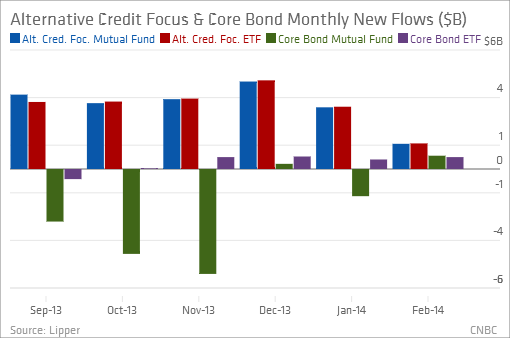Can You Substitute ETFs for the SoCalled Best Mutual Funds
Post on: 8 Апрель, 2015 No Comment

Can You Substitute ETFs for the So-Called Best Mutual Funds?
Rob Silverblatt recently penned an article for U.S. News & World Report titled, The Best Mutual Funds For 2010 . The article explains that in order to come up with its winners the publication utilized data on risk, expenses, future prospects and performance.
Unfortunately, many Best of the Best lists fail to uncover future stand-outs. For one thing, when a mutual fund gets an enormous amount of press, it typically receive an enormous inflow of investor cash; the excess assets under management create bloated funds that have less ability to move nimbly in their respective class.
Secondly, strategic steps of yester-year often become mis-steps in future years. Just ask Bill Miller of Legg Mason Value. For that matter, get a gander at how you would have done by purchasing 5-star Janus Worldwide in 2000 through when it was slowly demoted to a 2-star Morningstar fund years later. (You might have been better off buying in when it received its worst rating!)
Although I am fan of exchange-traded index funds or, more accurately, a practitioner of actively managing ETFs in client portfolios I still wondered how buying-n-holding comparable ETFs fared against The Best Mutual Funds For 2010. So I decided to check a few of them out.
1. Diversified Emerging Markets. The writer suggests that Eaton Vance Tax-Managed Emerging Markets (EITEX) gives investors a healthy dose of exposure to the BRIC nations (Brazil, Russia, India, and China). And yet, the portfolio is still well-diversified with 1,500+ holdings across 145 countries.
How does it match up against a hallmark ETF like Vanguard Emerging Markets (VWO)? The mutual fund EITEX provided a 17% total return excess value over 5 years.
Keep in mind, one needs to come back to the facts about indexing as an investment tool. The goal for EITEX is to outperform the MSCI Emerging Market Index that VWO tracks. Yet historically, only a small percentage of actively managed mutual funds actually beat their index benchmarks over time. (Perhaps 25 in a field of 200 candidates.)
Whats more, the best of the best funds tend to regress back to the mean in future years. In other words, given 10 or 15 years, fewer and fewer mutual funds will be able to outperform a comparable index ETF. In fact, you yourself may have seen statistics that suggest 86% of mutual funds havent been able to beat a comparable index over an extended period.
2. Health. This article nominated Fidelity Select Medical Equipment and Systems (FSMEX). Its interesting that U.S. News & World Report wouldnt categorize its health fund nomination as a sub-segment of a broader sector; medical devices hardly represents health care at large (e.g. pharma, biotech, health insurers, medical devices, etc.). Fortunately, the ETF world has the iShares Medical Devices Fund (IHI) for a reasonable comparison to be made.
Both began around the same time in mid-2006. And while IHI was clearly more volatile during the credit crisis, it still outperformed the competition.
Up to this point, I havent even mentioned one of the principal reasons for using ETFs and thats trade-ability. I myself look to lock in gains with trailing stop-loss orders. whether I am using VWO or IHI. As many a mutual fund investor has learned the hard way, one could get stuck with a buy-n-hold investment in a world where liquidity is its own asset.
3. Large Growth. I can say this much for the folks at U.S. News and World Report. They did a fine job of incorporating risk data into their selections. As with FSMEX above, the nominated Parnassus Workplace (PARWX) fund is clearly less volatile than the ultimate large-cap growth proxy in the the ETF arena, PowerShares Nasdaq 100 (QQQQ). The performance since PARWX inception is only on par with QQQQ, however.
So can you substitute ETFs for best of the best list funds? In most cases where there are larger dollar value accounts Yes, you should.
In my experience with best of lists over the last 20 years, it is rare that the previous superstars maintain their status; they typically become average or below average over the years that follow. Whats more, if you are more comfortable with knowing the holdings of your investment, ETFs have the transparency that traditional mutual funds do not.
Last, but hardly least, ETFs are easier to trade. John Bogle may think that you shouldnt be able to trade an investment so easily that you should buy-n-hold forever but I prefer to minimize the risk of bear market carnage.
You can listen to the ETF Expert Radio Show “LIVE”, via podcast or on your iPod . You can review more ETF Expert features here .














